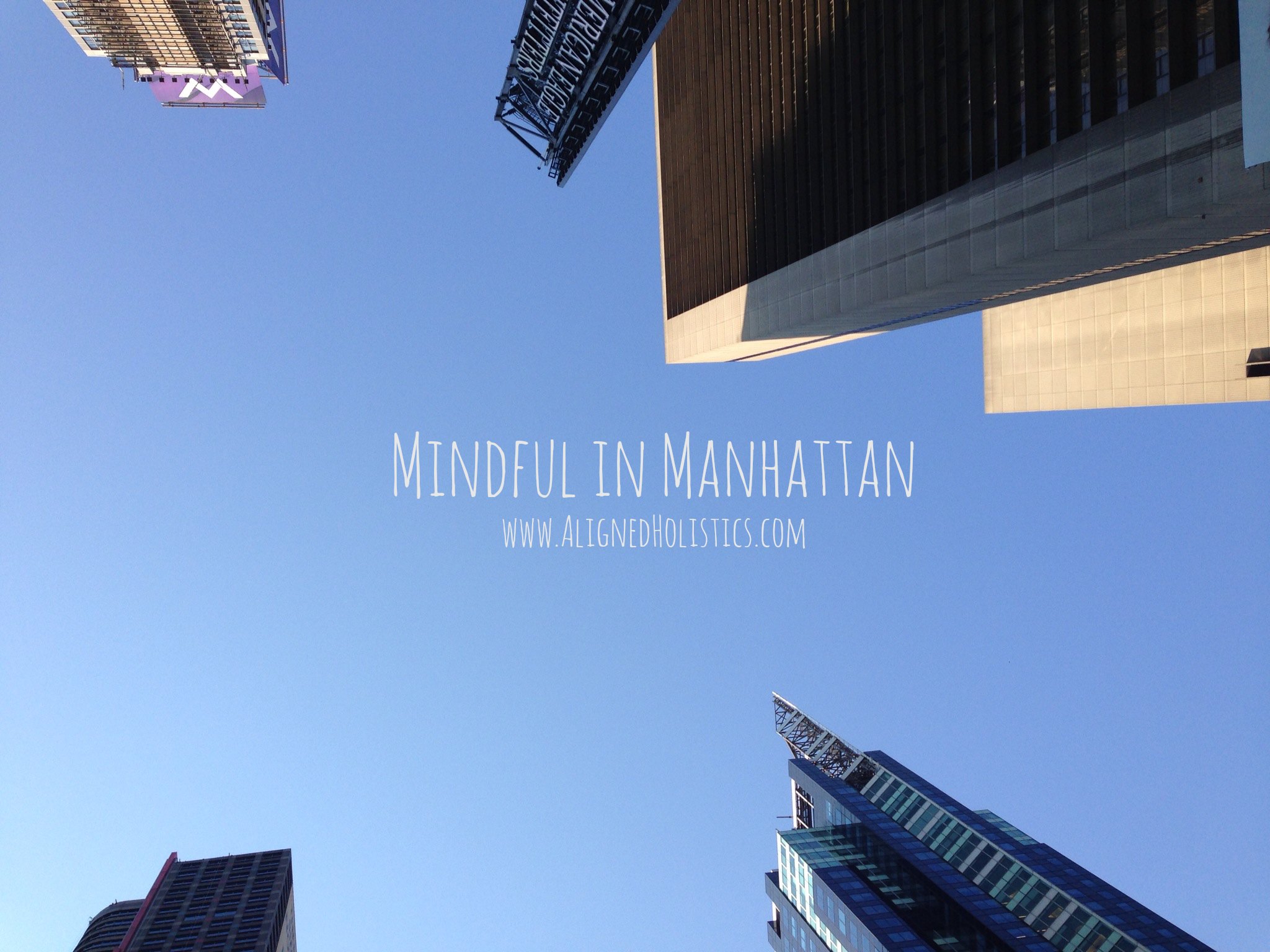Mindful in Manhattan.
The view from my yoga mat 7/21/13, 7:00 am Times Square, NYC
By now, you’ve probably seen the pictures floating around Facebook of Solstice in Times Square: Athleta Mind Over Madness Yoga. On June 21st thousands of yogis gathered in Times Square to strike an asana and explore the concept of “Mind Over Madness.”
But, other than a kickass tagline, what does that truly mean?
My experience was surreal. Surrounded by fellow yogis, friends, and tourists, I felt a sense of community that only yoga can create. Letting your guard down in NYC (especially Times Square) is a rare opportunity.
The experience was on that fine line between
bliss and control. The very nature of Times Square challenges one’s
mindfulness, it’s tough to walk through there at all, let alone do yoga! As I began my meditation, I tried to
tune out my surroundings only to realize that the sound of protestors shouting
paled in comparison to what my mind was shouting at me. “This is freakin’
awesome! Take pictures! Ahhhhh!”
I wanted to slip into the sweet bliss of mindfulness, but I was too excited. I wanted to be in the moment and capture it on film at the same time. Not surprisingly, my excitement and happiness allowed me to address my own madness: Do I want to experience this for the moment or for the future?
Before I continue, let’s get something clear:
Mindfulness is a state, it is not a trait.
It is a cultivated practice, while it might be promoted by activities like yoga or meditation, it isn’t a given that you will experience it. The benefits of a mindfulness practice include reduced stress, increased working memory[i], improved focus, decreased emotional reactivity, improved cognitive flexibility[ii], and increased relationship satisfaction[iii].
Beyond the science, there is a deeper truth: we need to experience things in the moment in order to experience them in the future. Remaining present allows us to connect more deeply to who we are. It offers insight into how we aligned with the experience and the true meaning of the assignment itself. It allows us to focus on ourselves in a loving way without which we would not be able to serve our larger community.
Mindfulness is the act of being present and listening to our authentic selves.
Warming up!
In Times Square, my mindfulness practice was put
to the test in an almost tangible way. Could I ignore all the external signs,
flashing lights, and music telling me what to buy and what I need?
Opening my eyes after meditation, I saw billboards telling me what to look like and who to be. But, it was in that moment that I knew I had found the stillness of peace. I was given the gift of seeing who I am within all this. I centered myself and found my stability, compassion, resilience and truth:
Ultimately we are not separate from anything. We
are all connected to every person, advertisement, and experience. I aligned
with this moment in order to learn that “Mind Over Madness” is a metaphor for
how we live our lives according to the yogic philosophy. We are our happiest
and healthiest selves when we create a union between the body, mind and spirit.
We must cultivate an awareness of ourselves as individual beings intimately
connected to the unified world around us. It is our purpose to create balance in
order to live in peace, health and harmony with the Universe as a whole.
So I ask you, what are your tips for being “Mindful in Manhattan”?
Comment below!
Yes, I endnote a blog because I'm a nerd :)
[i] A 2010 study by Jha et al., documented the benefits of mindfulness meditation among a military group who participated in an eight-week mindfulness training, a non-meditating military group and a group of nonmeditating civilians. Both military groups were in a highly stressful period before deployment. The researchers found that the nonmeditating military group had decreased working memory capacity over time, whereas working memory capacity among nonmeditating civilians was stable across time. Within the meditating military group, however, working memory capacity increased with meditation practice. In addition, meditation practice was directly related to self-reported positive affect and inversely related to self-reported negative affect.
[ii] One study found that people who practice mindfulness meditation appear to develop the skill of self-observation, which neurologically disengages the automatic pathways that were created by prior learning and enables present-moment input to be integrated in a new way (Siegel, 2007a). Meditation also activates the brain region associated with more adaptive responses to stressful or negative situations (Cahn & Polich, 2006; Davidson et al., 2003). Activation of this region corresponds with faster recovery to baseline after being negatively provoked (Davidson, 2000; Davidson, Jackson, & Kalin, 2000).
[iii] Several studies find that a person's ability to be mindful can help predict relationship satisfaction — the ability to respond well to relationship stress and the skill in communicating one's emotions to a partner. Empirical evidence suggests that mindfulness protects against the emotionally stressful effects of relationship conflict (Barnes et al., 2007), is positively associated with the ability to express oneself in various social situations (Dekeyser el al., 2008) and predicts relationship satisfaction (Barnes et al., 2007; Wachs & Cordova, 2007).


